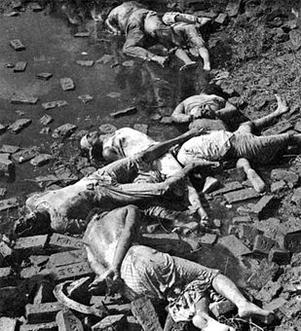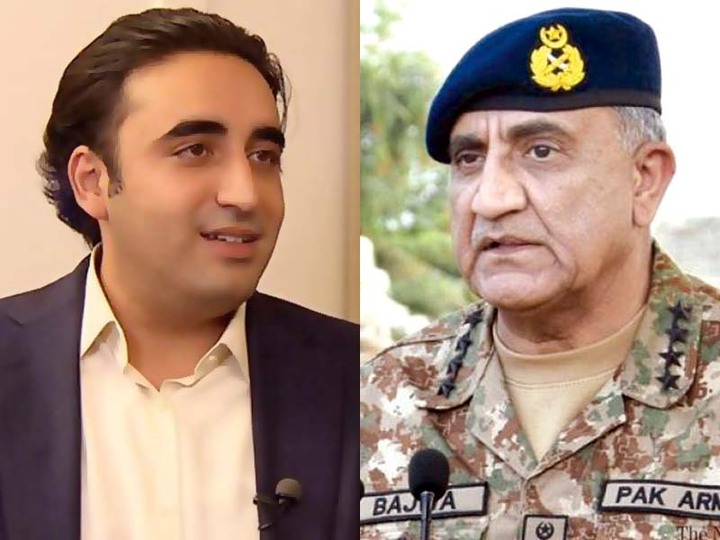by B. R. GOWANI


After two terms of three years each, Chief of Army Staff General Qamar Bajwa retired on November 29, 2022. Usually COAS serves one term only but in certain circumstances he’s allowed another term.
Before retiring, Bajwa had to give back something to the institution which gave him so much power, position, and pelf.
First, a little detour:
Bajwa’s eldest son Saad Siddique Bajwa got married to Mahnoor Sabir, daughter of Sabir “Mithu” Hameed. “Mithu” is Bajwa’s best friend. Through this marriage alliance, both families reaped immense financial benefits and turned billionaires within a span of six years, that is, Bajwa’s tenure. Bajwa’s family accumulated Rs12.7 billion or about $57 million.
Check out FactFocus for details.
The people who leaked this information can be in big trouble, in some cases can even get killed. Pakistan’s Finance Minister Ishaq Dar warned that the government “will bring this to a logical conclusion.” Government logics are mostly torturous and deadly. (Look at Julian Assange.)
Bajwa
Coming back to the main subject, Bajwa, to restore the prestige of one of the most corrupt institutions in Pakistan, the military, which has ruled directly and indirectly though most of that country’s existence of 75 years, in his last public address delivered on 23 November 2022, said that in February 2021, the army decided to not interfere in politics anymore. But … Saying is one thing; doing is another. In April 2022, then Prime Minister Imran Khan refused to leave office after a no-confidence vote in the National Assembly. Army played its role and Imran was shown the door. Here, it is interesting to remember that Imran Khan won the 2018 election with the help of the army under Bajwa’s leadership.
After bullshitting about what great work the Army was doing for the country, Bajwa traveled back in time to December 16, 1971, the day Pakistan got dismembered – it lost its eastern wing called East Pakistan, which became an independent country by the name of Bangladesh. Bajwa laid the blame for the 1971 debacle on politicians. His revision of history is:
“I want to correct some facts here. Firstly, former East Pakistan was a political failure and not a military one.”
There is no doubt that politicians of the Western wing has to be held accountable for the tragedy but the major burden lay with the army which was ruling Pakistan then.
Sheikh Mujibur Rahman’s demand was to hold national assembly session in Dacca (now Dhaka), the capital of East Pakistan. There was nothing wrong in it. Many political parties in West Pakistan refused to go to Dacca. One has to remember that the government still was in the hands of the army and it could have, if it really wanted to, called the session in Dacca. It didn’t, instead, it arrested Mujib and started crackdown. The Indian army helped East Pakistanis to fight the West Pakistan based military.
General Ayub Khan who took over Pakistan with absolute power in 1958 was forced out of power by the people in 1969; Ayub, however, didn’t leave before handing over power to another General, Yahya Khan. To his credit, Yahya held general elections in 1970, regarded as the free and fair. The party that overwhelmingly won the election was Sheikh Mujibur Rahman’s Awami League from East Pakistan. Awami League won 160 of the 162 seats alloted to that province out of the national total of 300. The western wing’s was assigned 138 seats because of population difference. (East Pakistan comprised of 54% of the total population where as West Pakistan had 46% of the population. Yahya had also dissolved the One Unit Scheme through Legal Framework Order which restored the four provinces: Baluchistan, NWFP (NortWest Frontier Province, now called Khyber-Pakhtunkhwa), Punjab, and Sindh. The One Unit Scheme was instituted in 1955 by the West Pakistan based ruling elite. It was designed to create some sort of parity against the eastern wing – what the ruling elite merged all four provinces into One Unit. The aim was to deny East Pakistan its legit political, social, cultural, and economic share, while using it as a colony of West Pakistan based capitalists/industrialists and continue robbing the East. The Pakistan military was not in favor of handing over power to the eastern wing and thus opposition by politicians in West Pakistan came handy as an excuse for the army.
Bilawal
Pakistan’s current Foreign Minister Bilawal Bhutto-Zardari had to respond because one of the central politicians in 1971 was his maternal grandfather Zulfiqar Ali Bhutto. Bajwa’s claim of “political failure” met Bilawal’s retaliation in these words:
“When Zulfikar Ali Bhutto took over the government, the people were broken and had lost all hope.” “But he rebuilt the nation, restored the confidence of the people and finally brought our 90,000 troops back home who had been made prisoners of war due to ‘military failure’. …”
Bilawal is correct that in the wake of the civil war, fought in East Pakistan between West Pakistan based army on the one hand and Mukti Bahini (Bengali guerrilla resistance movement etc.) and Indian forces on the other hand, the people in the remainder of Pakistan were shattered and hopeless. It is also true that Zulfiqar Ali’s charismatic personality and his oratorial skills instilled vigor and hope in people, and he also negotiated successfully with the then Indian Prime Minister Indira Gandhi the return of more than 92,000 Pakistanis.
(Bajwa rightly amended Bilawal’s figure of “90,000 troops” in Indian custody at 34,000; the rest, i.e., more than 92,000 minus 34,000, in Indian prisons belonged to various government departments in East Pakistan.)
What Bilawal omits to say is that people had lost all hope and were broken because it was Zulfiqar Ali who played a role too in creating such misery. Zulfiqar Ali’s Pakistan People’s Party got 81 NA seats out of the 138 seats western wing’s four provinces. He and Yahya, didn’t want Mujeeb to form government and so Yahya delayed calling the National Assembly session which infuriated long exploited Bengalis. The result was a nine month long civil war which resulted in a permanent separation of East Pakistan and West Pakistan into Bangladesh and Pakistan. The cost in destruction, loss of lives, number of women raped, number of wounded, and so on was enormous.
Pakistan military’s horrendous acts were committed under the operation
code-named “Operation Searchlight”
3 million people estimated to be killed
300,000 women raped
10 million ecaped to India to avoid Pakistani army’s atrocities
Pakistani journalist Neville Anthony Mascarenhas fled to London and published what he witnessed in East Pakistan under the title “Genocide.” An extract:
“I saw Hindus hunted from village to village and door to door, shot off-hand after a cursory ‘short arm inspection’ showed they were un-circumcised. I have heard the screams of men bludgeoned to death in the compound of the Circuit House in Comilla. I have seen truckloads of other human targets and those who had the humanity to try to help them hauled off for disposal under the cover of darkness and curfew.”
On the last day of 2021, the US based Lemkin Institute for Genocide Prevention issued a statement on the cruelties inflicted on Bengalis by the Pakistan Army and its local accomplices. An extract from the statement:
“The atrocities committed by the Pakistan army and the local collaborators—such as Razakars, Al-badrs and Al shams—included a systematic policy of sexual violence against Bengalis, a majority of them Bengali Hindu women and girls, involving vicious gang rapes, life force atrocities, sexual slavery, sexual torture, and forced maternity.”
The Zulfiqar Ali Bhutto government appointed Hamoodur Rahman Commission or War Enquiry Commission to investigate the role of Pakistan army and politicians in the breakup of Pakistan. The report has never been published in its entirety.
So the least Zulfiqar Ali Bhutto could do, after playing one of the protagonists in a tragedy of humongous proportion, was to create confidence and instill hope in the people of the remaining Pakistan.
Big deal.
Neither Bajwa nor Bilawal uttered a word for the Bengali victims.
B. R. Gowani can be reached at brgowani@hotmail.com
